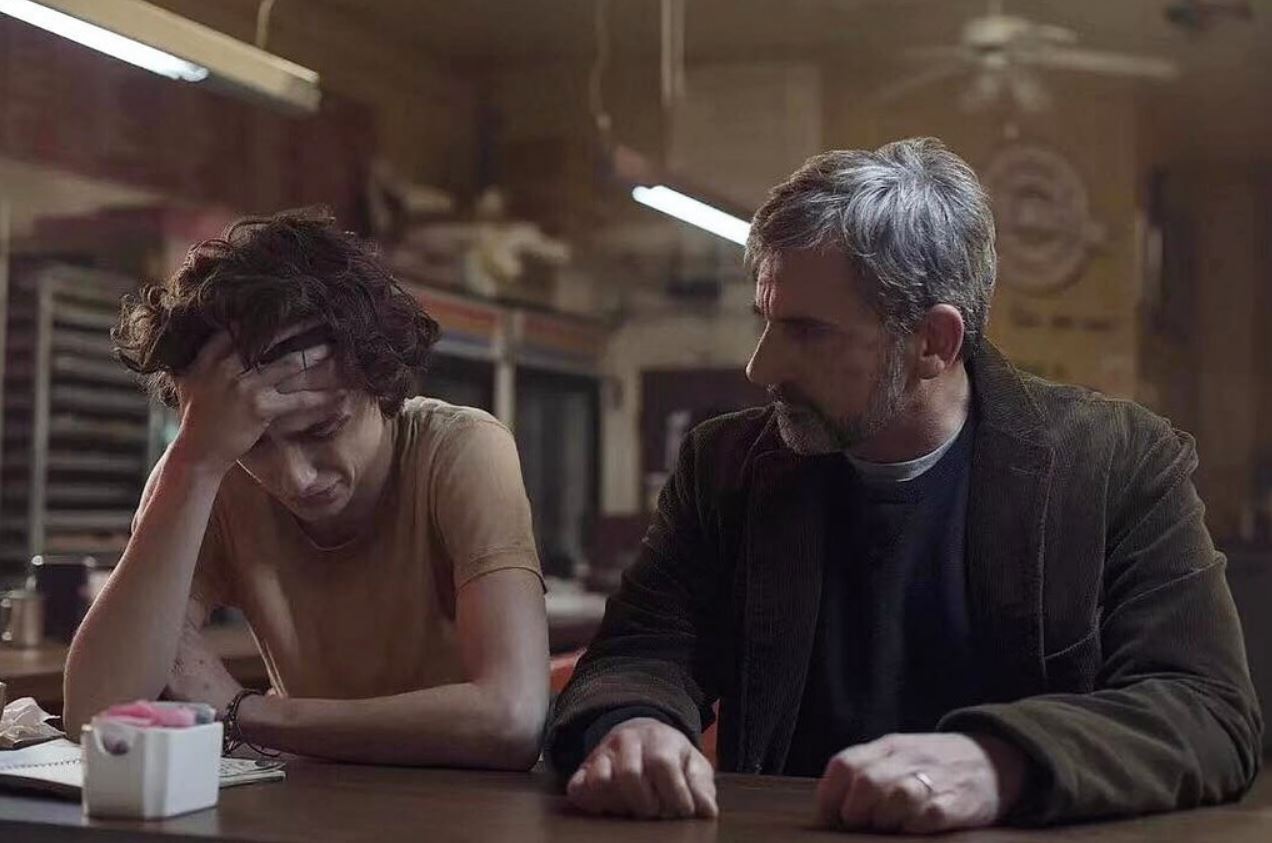Film Review: Beautiful Boy (2018)

Aside from its somewhat stylized structure, we’ve seen Beautiful Boy many times. It’s quite sad that the subject matter remains relevant, but if you’re looking for true innovation when tackling the harrowing ins and outs of addiction, there are better options. That’s not to say that Beautiful Boy isn’t worth a look, because it is. Unfortunately, it’s not as good as it thinks it is. I have no doubt that collective fingers are crossed in hopes of Oscar recognition – and it very well may pick up a few nods – but it’s not a serious contender.
Beautiful Boy is an emotional film, but it falls short of what it truly sets out to do. It wants us to feel along with David (Steve Carell) as he navigates his son’s drug addiction, but the basics of the story make this difficult. This is partially due to the roller-coaster “relapse repeat” structure. Watching Nic (Timothée Chalamet) make the same mistakes over and over becomes tedious at best, if not boring. There’s also no real reason for investment in Nic’s addiction. In real life (it’s based on a true story) the nuance of Nic’s problems and his relationship with his family is no doubt complex, but what we’re shown is cursory. At times he comes off as entitled, bratty, and privileged. It’s not that we don’t root for him to get clean, it’s that, for me anyway, I’m tired of seeing affluent white kids getting all the attention. To Hollywood, it’s as if the drug epidemic that’s been raging for over 30 years only really exists when the suburbs are affected. Curing this societal issue isn’t Hollywood’s responsibility, but for all the posturing, I’d like to see something with a bit more substance and representational responsibility.
Piggybacking on that, the characters are one-note. Nic is a drug addict, David is a distraught father. Don’t get me wrong, Chalamet and Carell deliver fine performances – quite good, actually – but there isn’t enough breathing room within the story for them to let their hair down. The film as presented only allows them – and everyone else – to be “types.” With some creative changes to the script and characterization, Beautiful Boy could have been something so much more than it is. I’m thinking something between the unfiltered reality of The Wire (especially the Bubbles character, whose Andre Royo makes an appearance as Nic’s sponsor) and the horror of Requiem for a Dream (2000) would have broken it out of its repetitive and derivative shell.
The rote presentation may prevent Beautiful Boy from being what it wants to be, but it’s still a good-looking film. Director Felix Van Groeningen and cinematographer Ruben Impens capture a lot of nice imagery to make up for some of the expositional shortcomings. The partially nonlinear timeline is a nice touch – with each new development offering nuggets of insight. In some instances, Carell’s David fondly remembers the boy he’s lost, but in others, he reflects on his contribution to the ugly predicament. Carell is very good at convincing us of his agony and showing us his wit’s end. He’s confused, angry, and hopeless – and it’s delivered well. I often think of Steve Carell as the modern-day realization of what Peter Sellers wanted his career to be. Both came from massively successful comedic backgrounds but longed for serious recognition. Sellers finally achieved it with Being There (1979), just before dropping dead. Carell seems to be picking up where his comedy idol left off – and doing a pretty good job of it.
Whether Beautiful Boy will pull at enough Academy heartstrings to garner some recognition remains to be seen. I wouldn’t be surprised or upset if it grabbed a few nods, but the paint-by-numbers story will likely prevent it from taking home any major statues. There is a compelling story buried in there somewhere, but you may have to read the books the film is based on to find it. Or just google it like I did.

